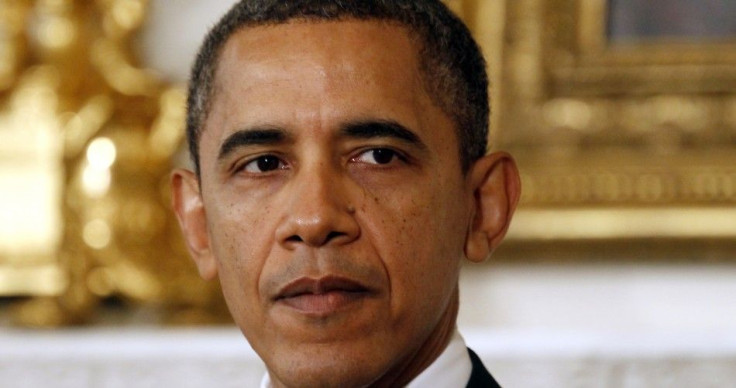The End Of Public Funding? Taxpayers, Candidates, Bow Out Of Presidential Election Fund

Even as Americans complain that special interest groups are essentially bankrolling the nation's presidential elections, the number choosing to contribute to the taxpayer-funded presidential election fund -- yes, it still exists -- has declined steadily since the system was introduced in the 1970s.
Fewer than 7 percent of American taxpayers chose to make a $3 contribution to the Presidential Election Campaign Fund in 2010, according to the most recent data available from the Federal Election Commission, down from the nearly 29 percent who did so in 1980. While that was the high mark of the program's popularity since its launch in 1976, at least 15 percent of taxpayers contributed to the fund in the years before 1994, according to an analysis from the Center for Public Integrity.
The fund, among the reforms enacted in the '70s after the Watergate scandal, originally gave taxpayers the option to designate $1 toward the public funding of presidential primary and general election campaigns, as well as national party conventions, when filing federal income taxes. The figure was later increased.
The idea of public funding for presidential candidates is now a century old. Legislation on the issue was initially introduced in 1907; that same year, President Theodore Roosevelt endorsed public financing, as well as a ban on private contributions, in his State of the Union message.
Ideally, the system would stem corruption by keeping presidential candidates from bowing to influence from special-interest donors via a direct, taxpayer-paid source of campaign funding. Currently, both the Republican and Democratic nominees in the general election can choose to receive a public grant of $20 million, in addition to a cost-of-living adjustment, if they meet certain qualifications: The candidate must limit his campaign spending to the amount of the grant and may not accept private contributions aside from those designated for a special account maintained exclusively for legal and accounting expenses. Candidates may also spend up to $50,000 from their own personal funds.
For candidates in the primary cycle, the federal government will match up to $250 of each individual's total contribution to an eligible candidate if they submit proof to the FEC that at least $5,000 was raised in each of at least 20 states. Eligible candidates can receive public funds equaling about half of the national spending limit for the primary campaign.
The Curse of Steve Forbes
While many candidates in the first 20 years of the system may have felt constrained by the spending limits required to qualify for public funding, the system was irrevocably altered in 1996 when the publishing magnate Steve Forbes decided to pursue the nation's highest office.
As the Center for Responsive Politics' OpenSecrets blog has noted, Forbes freed himself to spend as much of his own substantial cash reserves as he wished when he opted out of public financing during that year's primary cycle. The billionaire refused the matching funds offered through the program, instead putting more than $37 million of his own money into his campaign.
Forbes' self-funding effectively opened the door to massive campaign fundraising, according to OpenSecrets. After he decided to try his luck again in 2000, his fellow Republican George W. Bush also decided to refuse the matching donations offered through the PECF.
Bush proceeded to raise more than $100 million in individual contributions that election cycle, which he won. The lesson was not lost on Bush's Democratic challengers in 2004 -- early frontrunner Howard Dean and eventual nominee John Kerry both declined the publicly matched funds during the primaries in order to raise unlimited amounts of money.
Despite opting out during the primaries, both Bush and Kerry accepted public funding for the general election in 2004. That all ended in 2008, when Barack Obama became the first major-party candidate to refuse public funding for both the primary and general, a campaign for which his team managed to raise a staggering $750 million.
Obama was able to outspend his Republican rival John McCain by tens of millions of dollars as a result. Although the Arizona senator had raised more than $200 million during the GOP primaries, he ultimately opted into public financing during his general election battle with Obama.
An Irrelevant System?
As recently as 1996, both Bill Clinton and his Republican challenger Bob Dole managed to run for president while raising a -- comparatively -- meager $35 million each in campaign contributions. Presidential fundraising almost quadrupled between that year and 2008, when the Center for Responsive Politics reports presidential candidates collected a combined $2 billion in contributions.
With the advent of bundlers -- top fundraisers who raise at least $50,000 toward a campaign -- and outside spending groups like super PACs, presidential candidates are even less likely to opt into the public financing system today. Both Obama, who has already raised $156 million in individual contributions for the 2012 cycle, and Republican frontrunner Mitt Romney are expected to forgo taxpayer funds during this election.
In 2008 Obama, purportedly a supporter of the public financing system, said opting out was not an easy decision ... but the public financing of presidential elections as it exists today is broken.
The president may have inadvertently solidified the irrelevancy of the system -- last January, a bill proposed by Rep. Gregg Harper, R-Miss., that would completely terminate the PECF passed the House of Representatives with the support of 10 Democrats and all but one Republican.
© Copyright IBTimes 2025. All rights reserved.





















